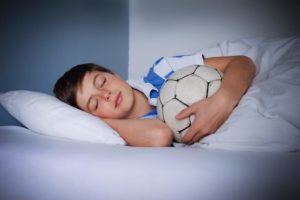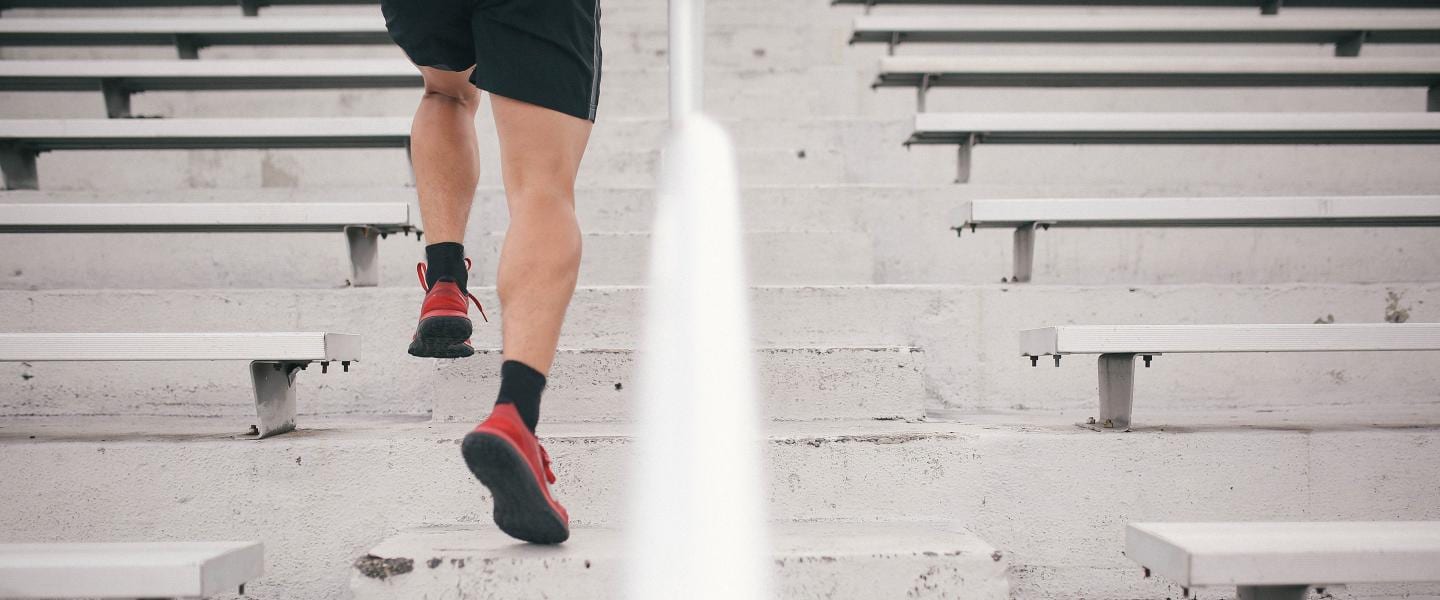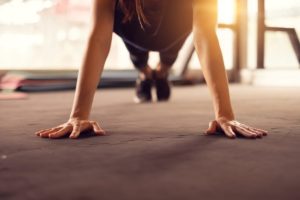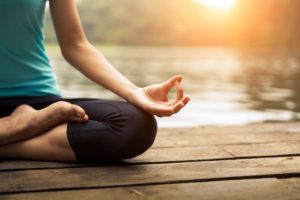What’s the Best Time of Day to Exercise for Sleep?
Exercise is an important part of sleep hygiene, and is shown to boost the quality and duration of sleep. Despite the clear benefits of exercise for sleep, there is ongoing debate about the best time of day to exercise for optimal sleep. Studies on the relationship between exercise timing and sleep have been carried out in a wide range of populations, making it difficult to draw clear conclusions. However, researchers are gradually starting to understand the different advantages of exercising at certain times of day.
How Does Exercise Influence Sleep?
Regular exercise, and even short bouts of exercise, can lead to improvements in total sleep time, sleep quality, and time spent falling asleep. Exercise may also help reduce the symptoms of sleep disorders such as sleep apnea or sleep-related movement disorders like restless legs syndrome.
Current science suggests there is no one universal time of day that is best to exercise for sleep. Rather, the optimal exercise time likely depends on individual factors such as your chronotype, your age, and any underlying health conditions.
To see meaningful benefits for sleep, most experts recommend getting at least 150 minutes of exercise a week , which should be split into 30-minute intervals five days a week. Research suggests that total sleep duration only increases after workouts of at least an hour , though this may depend on the type of exercise.
Individuals with pre-existing health conditions may need to approach exercise timing strategically. For example, people at risk of high blood pressure may see greater improvements to sleep quality and nighttime blood pressure after exercising in the morning.
Exercise and the Circadian Rhythm
Aerobic exercise in the morning or afternoon stimulates earlier melatonin release and shifts the circadian rhythm forward. For people who exercise outdoors, morning exercise may have the added benefit of exposure to sunlight. This helps stabilize circadian rhythms and makes it easier to fall asleep early.
Research has found that evening exercise may negatively affect sleep quality for early birds, but not for night owls. This may be one reason why certain people have no trouble exercising at night, while others struggle to sleep afterward.
In one of the few studies that allowed participants to keep their regular exercise routine during the study instead of assigning a new one, there was no significant effect found on sleep quality for people who exercised in the morning versus the evening. It may be that people are naturally inclined to exercise at a time of day that fits well with their circadian rhythm.
For professional athletes and others who are not able to choose their training schedule, taking melatonin after an evening exercise session may help reset the circadian rhythm and mitigate the effects on sleep quality.
Does Working Out Before Bed Make It Harder to Sleep?
For most people, moderate-intensity exercise does not have a detrimental effect on sleep as long as the workout concludes at least 90 minutes before bedtime . This allows time for endorphin levels and core body temperature to return to levels that are conducive to sleep.
In preparation for sleep, body temperature drops, heart rate slows, and brain waves get slower. By contrast, exercise leads to a rise in core body temperature, an increased heart rate, and higher levels of arousal that can hinder sleep. Because of these physiological processes, experts have advised against exercising before bed in the past.
However, recent studies have found that exercise at night may not have such a negative impact on sleep or morning grogginess , and may even increase the proportion of restorative deep sleep. A 2013 study also found no evidence that evening exercise was harmful to sleep. Current sleep hygiene recommendations reflect the beneficial effects of exercise for sleep at any time of day.
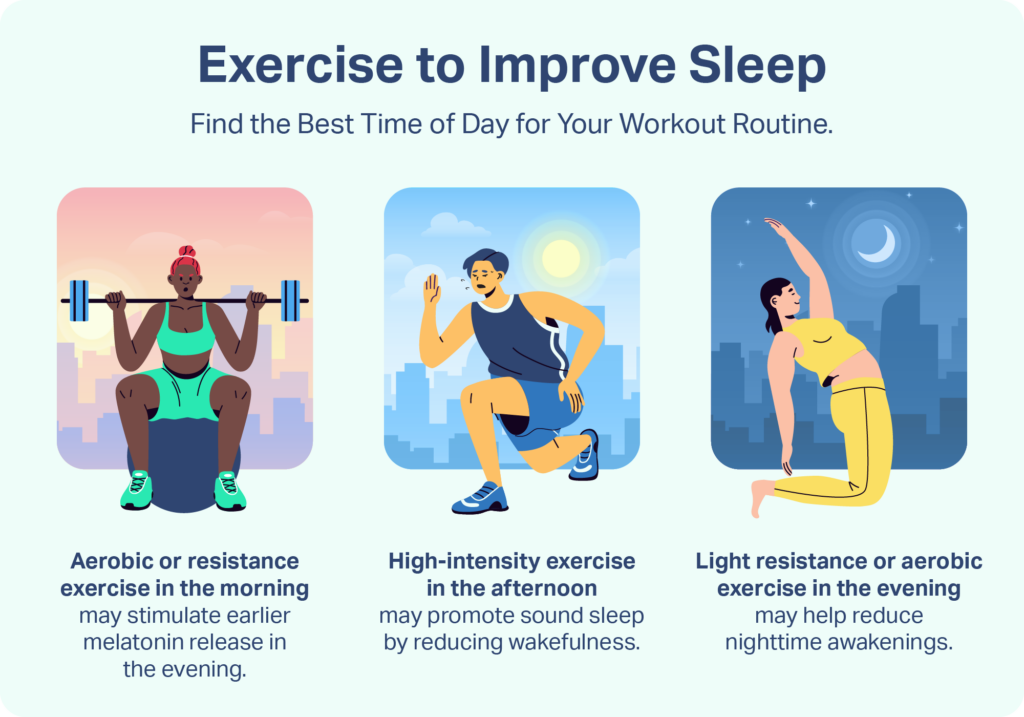
Exercise helps calm anxiety and depression, and helps the mind relax in preparation for sleep. It also provokes a sharp rise in body temperature followed by a gradual cooling, which mimics the natural fluctuations of the circadian rhythm and paves the way for sleep. Multiple studies have found that evening exercise improves sleep quality by helping people fall asleep faster, reducing nighttime awakenings, and increasing the time spent in slow-wave sleep.
However, experts caution that vigorous exercise within one hour of bedtime does not allow time for core body temperature to cool. This may delay sleep, affect sleep quality, and lead to more nighttime awakenings. People with insomnia are usually advised to stick to light to moderate exercise at least four hours before bedtime .

How to Schedule Exercise to Improve Sleep
Both morning and evening exercise have been shown to promote deep sleep, and it appears that total sleep time is not affected by exercising in the morning versus the evening. However, you may be able to maximize the benefits for sleep by tailoring your exercise regimen to your daily routine.
Doing either aerobic or resistance exercise – such as running or weightlifting – in the morning can help you fall asleep faster at night. High-intensity exercise in the afternoon and early evening may also promote sound sleep. Working out at this time of day seems to contribute to drowsiness by lowering levels of orexin, a neurotransmitter that promotes wakefulness.
If you have no problems falling asleep but you find yourself frequently waking up throughout the night, you may find it more useful to add an evening exercise routine. Resistance exercise or light aerobic exercise performed in the early evening are best for reducing nighttime awakenings, possibly because they impart the benefits of exercise without excessively raising body temperature.
You may need to experiment to find an exercise schedule that works for you. If you have trouble sleeping after exercise in the morning, try shifting your workouts later. If you have sleep troubles after exercising at night, it might help to schedule your workouts earlier in the day.

Still have questions? Ask our community!
Join our Sleep Care Community — a trusted hub of sleep health professionals, product specialists, and people just like you. Whether you need expert sleep advice for your insomnia or you’re searching for the perfect mattress, we’ve got you covered. Get personalized guidance from the experts who know sleep best.
References
15 Sources
-
Kredlow, M. A., Capozzoli, M. C., Hearon, B. A., Calkins, A. W., & Otto, M. W. (2015). The effects of physical activity on sleep: A meta-analytic review. Journal of Behavioral Medicine, 38(3), 427–449.
https://pubmed.ncbi.nlm.nih.gov/25596964/ -
Kline, C. E., Crowley, E. P., Ewing, G. B., Burch, J. B., Blair, S. N., Durstine, J. L., Davis, J. M., & Youngstedt, S. D. (2011). The effect of exercise training on obstructive sleep apnea and sleep quality: a randomized controlled trial. Sleep, 34(12), 1631–1640.
https://pubmed.ncbi.nlm.nih.gov/22131599/ -
Franco, B., Daubian-Nosé, P., De-Mello, M. T., & Esteves, A. M. (2019). Exercise as a favorable non-pharmacologic treatment to Sleep-Related Movement Disorders: a review. Sleep science (Sao Paulo, Brazil), 12(2), 116–121.
https://pubmed.ncbi.nlm.nih.gov/31879545/ -
Hartescu, I., Morgan, K., & Stevinson, C. D. (2015). Increased physical activity improves sleep and mood outcomes in inactive people with insomnia: a randomized controlled trial. Journal of sleep research, 24(5), 526–534.
https://pubmed.ncbi.nlm.nih.gov/25903450/ -
Alley, J. R., Mazzochi, J. W., Smith, C. J., Morris, D. M., & Collier, S. R. (2015). Effects of resistance exercise timing on sleep architecture and nocturnal blood pressure. Journal of strength and conditioning research, 29(5), 1378–1385.
https://journals.lww.com/00124278-201505000-00028 -
Fairbrother, K., Cartner, B., Alley, J. R., Curry, C. D., Dickinson, D. L., Morris, D. M., & Collier, S. R. (2014). Effects of exercise timing on sleep architecture and nocturnal blood pressure in prehypertensives. Vascular health and risk management, 10, 691–698.
https://pubmed.ncbi.nlm.nih.gov/25540588/ -
Youngstedt, S. D., Elliott, J. A., & Kripke, D. F. (2019). Human circadian phase-response curves for exercise. The Journal of physiology, 597(8), 2253–2268.
https://pubmed.ncbi.nlm.nih.gov/30784068/ -
Vitale, J. A., Bonato, M., Galasso, L., La Torre, A., Merati, G., Montaruli, A., Roveda, E., & Carandente, F. (2017). Sleep quality and high intensity interval training at two different times of day: A crossover study on the influence of the chronotype in male collegiate soccer players. Chronobiology international, 34(2), 260–268.
https://www.tandfonline.com/doi/full/10.1080/07420528.2016.1256301 -
Burgess, V. N., Antonio, J., Bland, H. W., Wagner, R., Tartar, J. L., & Melton, B. F. (2020). The Effect of Timing and Type of Exercise on the Quality of Sleep in Trained Individuals. International journal of exercise science, 13(7), 837–858.
https://pubmed.ncbi.nlm.nih.gov/32922649/ -
Cheikh, M., Hammouda, O., Gaamouri, N., Driss, T., Chamari, K., Cheikh, R. B., Dogui, M., & Souissi, N. (2018). Melatonin ingestion after exhaustive late-evening exercise improves sleep quality and quantity, and short-term performances in teenage athletes. Chronobiology international, 35(9), 1281–1293.
https://www.tandfonline.com/doi/full/10.1080/07420528.2018.1474891 -
Miller, D. J., Sargent, C., Roach, G. D., Scanlan, A. T., Vincent, G. E., & Lastella, M. (2020). Moderate-intensity exercise performed in the evening does not impair sleep in healthy males. European journal of sport science, 20(1), 80–89.
https://www.tandfonline.com/doi/full/10.1080/17461391.2019.1611934 -
Souissi, M., Chtourou, H., Zrane, A., Cheikh, R. B., Dogui, M., Tabka, Z., & Souissi, N. (2012). Effect of time-of-day of aerobic maximal exercise on the sleep quality of trained subjects. Biological rhythm research, 43(3), 323-330.
https://www.tandfonline.com/doi/abs/10.1080/09291016.2011.589159 -
Stutz, J., Eiholzer, R., & Spengler, C. M. (2019). Effects of Evening Exercise on Sleep in Healthy Participants: A Systematic Review and Meta-Analysis. Sports medicine (Auckland, N.Z.), 49(2), 269–287.
http://link.springer.com/10.1007/s40279-018-1015-0 -
Vincent, G. E., Sargent, C., Roach, G. D., Miller, D. J., Kovac, K., Scanlan, A. T., Waggoner, L. B., & Lastella, M. (2020). Exercise before bed does not impact sleep inertia in young healthy males. Journal of sleep research, 29(3), e12903.
https://onlinelibrary.wiley.com/doi/10.1111/jsr.12903 -
Saidi, O., Davenne, D., Lehorgne, C., & Duché, P. (2020). Effects of timing of moderate exercise in the evening on sleep and subsequent dietary intake in lean, young, healthy adults: randomized crossover study. European journal of applied physiology, 120(7), 1551–1562.
https://link.springer.com/10.1007/s00421-020-04386-6




